Wisdom teeth are the last tooth to grow in the dental arch. Ending wisdom tooth growing pain not only helps you feel more comfortable and eat more easily, but also prevents complications like gum infection, the wisdom tooth pushing against nearby teeth, and teeth shifting due to the wisdom tooth. This article will help answer the question “Can wisdom tooth pain go away?” and when you should consider removal.
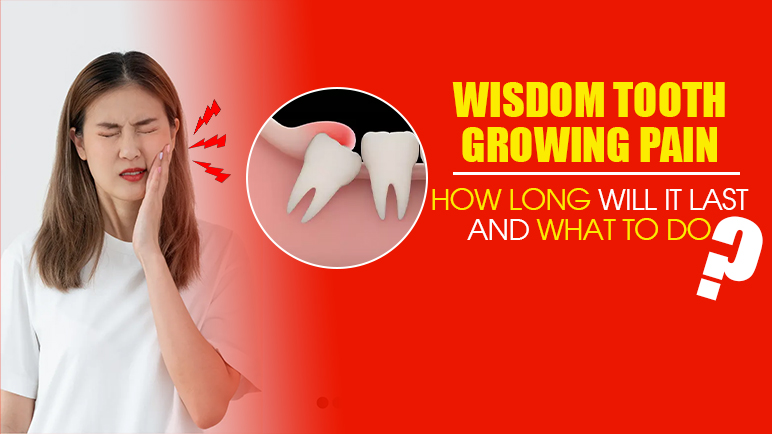
Understanding wisdom tooth growing pain and its implications
Wisdom teeth, known scientifically as third molars, play a significant role in the dental landscape of adults. While they have become somewhat notorious for causing discomfort, understanding their evolution and implications can provide clarity on their necessity and the pain associated with their growth.
What is a wisdom teeth?
The term “wisdom tooth” refers to the last set of molars that typically emerge between the ages of 17 and 25. They were named for their association with maturity and wisdom, as this stage of life usually coincides with an individual’s transition into adulthood.

However, the evolutionary purpose of these teeth has diminished over time. Initially, our ancestors had larger jaws that accommodated all 32 teeth comfortably, allowing them to chew coarse food more effectively. Today’s human jaw structure has changed, leaving insufficient space for these additional teeth. Thus, many experience problems such as wisdom tooth growing pain due to overcrowding or misalignment.
The Evolutionary Purpose of Wisdom Teeth
Exploring the evolutionary significance of wisdom teeth reveals fascinating insights into human history. In ancient times, wisdom teeth provided necessary functions for our ancestors who relied heavily on rough and abrasive diets. These teeth helped them grind down plant fibers and meat, which was critical for nourishment.
In modern society, however, the need for wisdom teeth has waned considerably. As diets have evolved and cooking methods have advanced, the size of the human jaw has also adapted, leading to a situation where many people find themselves with too many teeth for their individual mouth structures.
The Normal Dental Structure in Adults
A normal adult mouth comprises 28 teeth, excluding the wisdom teeth. These include incisors, canines, and premolars, which serve various functions like cutting, tearing, and grinding food. When wisdom teeth begin to grow, they can create issues such as crowding or shifting of existing teeth, leading to discomfort.
For many, the concern arises not just from the presence of these extra molars but from the complications they can bring. Crowding can lead to misalignment of other teeth and may cause chronic dental problems if left untreated.
Wisdom Tooth Growing Pain: How Long Will It Last
Wisdom tooth growing pain is a common issue that many people experience. If you’re wondering “how long does wisdom tooth growing pain last?” you’re not alone. The pain can vary depending on several factors, including the position of the tooth and your overall dental health.
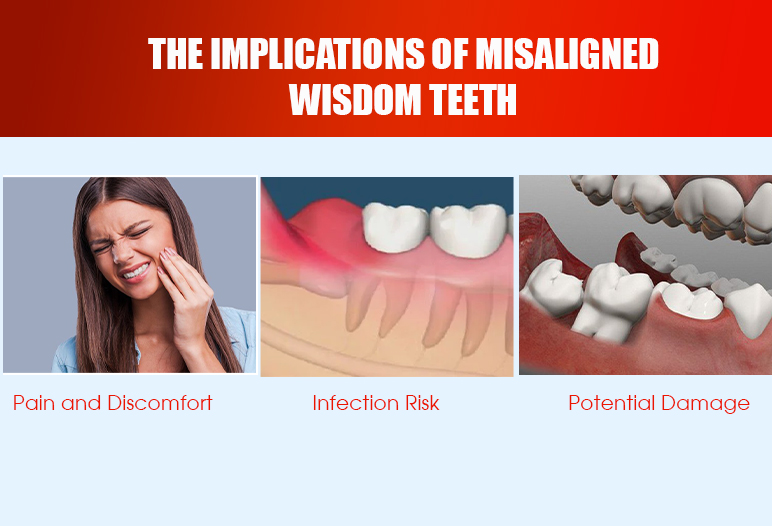
Factors That Affect Wisdom Tooth Growing Pain
Several factors can influence how long wisdom tooth growing pain lasts:
- Tooth Position: Impacted or misaligned wisdom teeth tend to cause longer and more intense pain.
- Space in the Jaw: If there is not enough room for the wisdom tooth to grow, it can lead to prolonged discomfort.
- Overall Oral Health: Good dental health may reduce the severity and duration of the pain.
Symptoms of Wisdom Tooth Growing Pain at Different Stages
The process of wisdom tooth eruption occurs in several stages and can last anywhere from a few days to several months, or even over a year, depending on the individual’s specific condition. Below are the common symptoms during each stage of wisdom tooth eruption:
Initial Pain (First Few Days)
When your wisdom tooth begins to emerge, you may feel some mild discomfort or swelling around the gum. This pain usually lasts for a few days and should gradually subside as the tooth breaks through the gum line.
Pain During the Eruption (1-3 Weeks)
Wisdom teeth pain may increase as the tooth pushes further through the gum. This stage typically lasts from 1 to 3 weeks. During this time, you may experience soreness or swelling, and it might be hard to chew or eat certain foods.
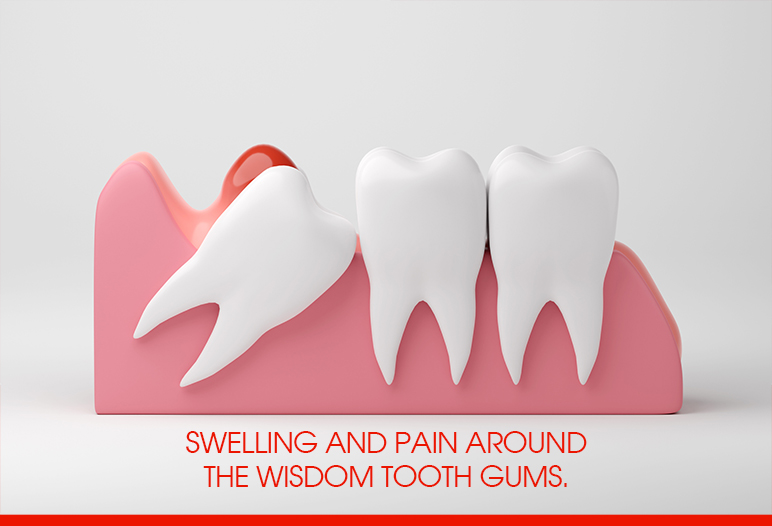
Prolonged Pain (1-6 Months)
If your wisdom tooth is impacted or growing in an awkward position, the pain can last much longer. For some people, this phase can continue for 1 to 6 months. Impacted wisdom teeth can cause more severe pain and may lead to infections, cysts, or damage to neighboring teeth.
Pain After Full Eruption (6+ Months)
Once the wisdom tooth has fully erupted, the pain should subside. However, if there are complications like infection or misalignment, the pain could return or persist. Regular dental checkups are essential to ensure your wisdom teeth are not causing ongoing issues.
Recognizing when to remove wisdom teeth
Deciding to remove wisdom teeth depends on your specific condition, including symptoms and possible future complications. Here are the main signs that indicate it might be time to remove your wisdom teeth.
Signs indicating the need for extraction
- Persistent Pain: If you feel constant pain around the wisdom teeth, especially when eating or touching the area, this could indicate misalignment or issues with the eruption of the tooth.
- Swelling Around the Gums: Swelling or inflammation in the gum area near the wisdom tooth can lead to discomfort, making it harder to eat or speak.
- Crowding or Misalignment: Wisdom teeth often don’t have enough space to grow properly. If they start pushing against other teeth, they can cause crowding or shift your teeth, leading to pain and dental issues.
- Infection or Gum Disease: Partially erupted wisdom teeth create gaps that trap food and bacteria, leading to infections or gum disease. This can result in bad breath, swelling, or a persistent sore feeling.
- Cavities or Gum Problems: If wisdom teeth are difficult to clean due to their position, they are prone to cavities or gum disease. This can negatively affect your overall dental health.
- Pain Spreading to Other Areas: Sometimes the pain from wisdom teeth can spread to the jaw, ears, or head, causing discomfort and headaches.
Benefits of Early Removal
Removing your wisdom teeth is essential for long-term dental health. Don’t wait until you feel severe pain. Be proactive and visit your dentist regularly to have your wisdom teeth checked and removed if necessary. Early removal will help you avoid unwanted complications in the future.
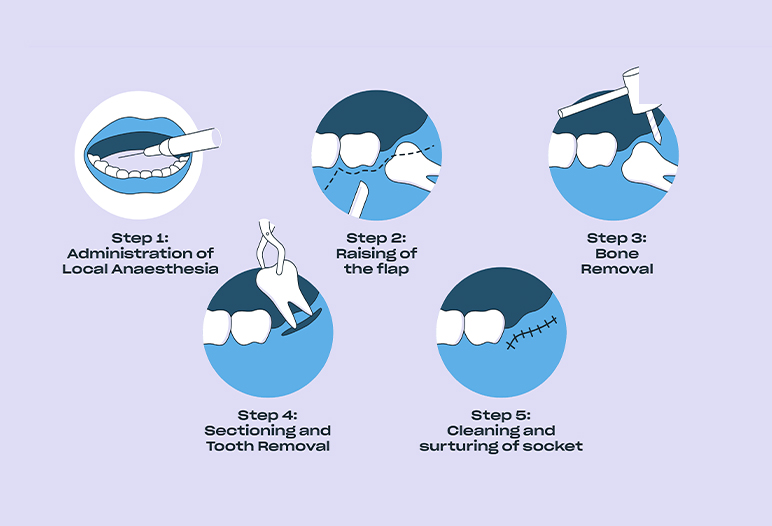
Removing wisdom teeth at an early stage offers several benefits. First, younger patients tend to heal faster due to the flexibility of their bone structure. This ensures a smoother extraction process and potentially less discomfort post-procedure.
Furthermore, addressing any issues before the tooth becomes fully developed minimizes the risk of complications such as deeper impaction or damage to adjacent teeth. Early intervention can significantly improve overall oral health and mitigate long-term problems down the line.
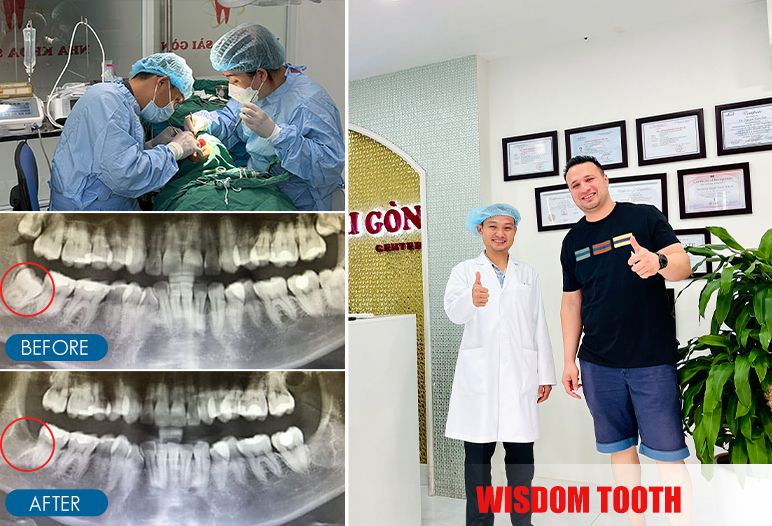
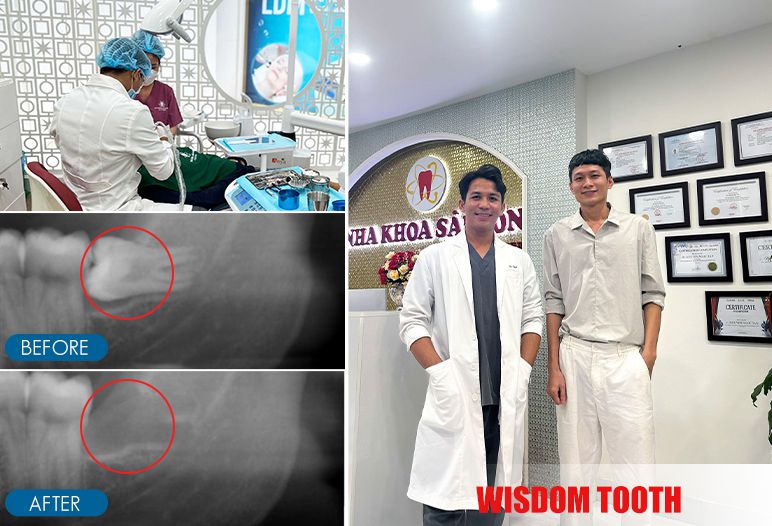
What happens when wisdom teeth begin to fall apart?
As wisdom teeth continue to evolve in a compressed mouth space, they may face deterioration, leading to various dental issues.
Common symptoms of decay or damage
When wisdom teeth start to fall apart, symptoms can vary from mild discomfort to severe pain. Individuals may notice increased sensitivity to hot or cold temperatures, and possibly visible decay around the affected tooth.
Bad breath or an unpleasant taste in the mouth can also arise, indicating underlying decay or infection. If left untreated, these symptoms can worsen, leading to more serious dental issues that require immediate attention.
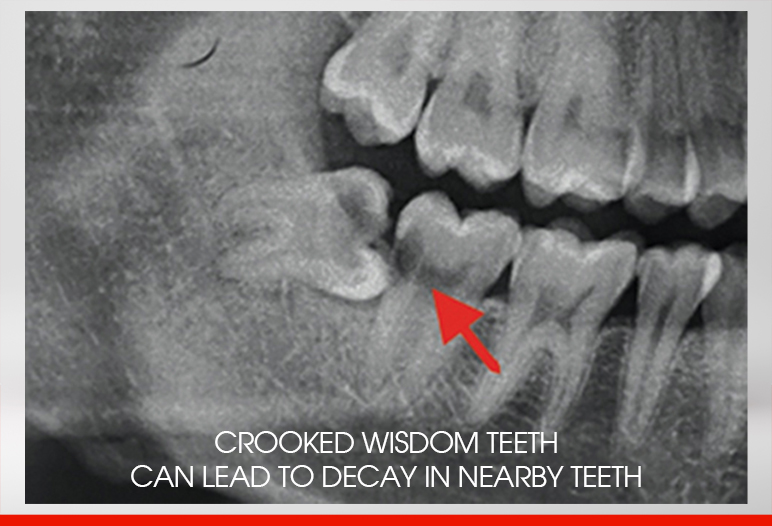
Dental Health Implications of Failing Wisdom Teeth
Failing wisdom teeth can have far-reaching implications for overall dental health. Not only can these teeth lead to localized pain and discomfort, but they can also contribute to more extensive dental problems such as gum disease and infections.
Untreated decay can result in the spread of bacteria throughout the mouth, impacting other teeth and compromising overall oral hygiene. Consequently, seeking professional dental evaluation at the first signs of failing wisdom teeth is paramount in maintaining good health.
Managing wisdom tooth pain: relief strategies
While waiting for dental intervention or considering extraction, managing wisdom tooth pain is essential for comfort. There are several strategies that individuals can employ to alleviate discomfort during this challenging time.
Over-the-Counter Pain Relievers
Over-the-counter medications are often the first line of defense against wisdom tooth pain. Non-steroidal anti-inflammatory drugs (NSAIDs) such as ibuprofen and acetaminophen can reduce inflammation and alleviate pain effectively.
Consulting with a healthcare provider about dosages and alternatives is advisable, especially for those with pre-existing conditions or sensitivities to certain medications.
Home Remedies for Temporary Relief
For those seeking temporary relief from wisdom tooth pain, various home remedies can offer comfort. Applying a warm compress to the outside of the cheek can help soothe inflammation and provide a sense of relief.
Saltwater rinses are another effective method to reduce swelling and promote healing. Incorporating warm saltwater into a daily rinse routine can help keep the oral environment clean while alleviating discomfort.
Frequently Asked Questions
With numerous questions arising concerning wisdom teeth, it’s essential to address some of the most frequently asked queries.
Can wisdom tooth pain go away on its own?
In some cases, individuals may experience sporadic pain that resolves itself as the tooth continues to emerge. However, it is essential to monitor symptoms closely; if pain persists or worsens, consulting a dentist is crucial.
What is the normal number of teeth for adults?
A typical adult mouth consists of 28 teeth normal, excluding wisdom teeth. With the inclusion of wisdom teeth, the total count reaches 32. This discrepancy highlights the variability in dental health and the necessity for individual assessment regarding wisdom teeth.
Conclusion
Navigating the complexities of wisdom tooth growing pain: how long it lasts can be daunting. By understanding the reasons behind wisdom teeth and recognizing when to seek intervention, individuals can manage pain effectively and maintain optimal oral health. Whether choosing to extract the teeth or managing pain at home, staying informed and proactive can lead to better outcomes and improved quality of life.

